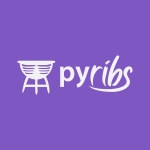Biography
My name is Yulun Zhang (张宇伦). I am a fourth year Ph.D. student in Robotics Institute at the Carnegie Mellon University, advised by Professor Jiaoyang Li in the ARCS Lab. Currently I am focusing on environment optimization for Multi-Agent Path Finding (MAPF) algorithms using Quality-Diversity (QD) optimization, evolutionary computation, and generative modeling methods. An overview of my research can be found on our lab website (updated May 2025).
Previously, I was a master/undergrad student majoring in Computer Science at the University of Southern California. I was working in ICAROS lab at USC with Professor Stefanos Nikolaidis and Dr. Matthew Fontaine on surrogate assisted QD optimization and scenario generation for human-robot coordination. I was also working in RESL at USC with Dr. Ryan Julian and Dr. K.R. Zentner on transfer learning for robotics.
In addition, I was working in the USC Interaction Lab with Professor Matt Rueben on socially assistive robotics as well as Professor William Halfond’s group on record and replay tools for Android.
Here is my most recent CV (updated Oct 2025).
I am also enthusiastic about photography, especially scenery photography. Check out my photography portfolio and instagram for some of my works.
Contact me: yulunzhang [at] cmu [dot] edu
- Quality Diversity Optimization
- Evolutionary Computation
- Multi-Robot Coordination
- Human-Robot Interaction
Ph.D. in Robotics, 2022 - Present
Carnegie Mellon University
MSc in Computer Science, 2020 - 2022
University of Southern California
BSc in Computer Science, 2017 - 2021
University of Southern California
Recent News
[2025/10] Our paper Destination-to-Chutes Task Mapping Optimization for Multi-Robot Coordination in Robotic Sorting Systems, in collaboration with Amazon Robotics, was accepted to MRS 2025!
[2025/05] Started working as a Research Intern in Symbotic in Boston, MA, USA!
[2025/02] Physically attended AAAI 2025 in Philadelphia, PA, USA!
[2024/12] Our paper Online Guidance Graph Optimization for Lifelong Multi-Agent Path Finding was accepted to AAAI 2025!
[2024/08] Physically attended IJCAI 2024 in Jeju Island, South Korea!
[2024/06] Physically attended SoCS 2024 in Kananaskis, Alberta, Canada!
[2024/05] Started working as an Applied Scientist Intern in Amazon Robotics in Boston, MA, USA!
[2024/04] Two papers (GGO and MAPF Mechanism) were accepted to IJCAI 2024!
Featured Publications
$^U$ denotes mentored Undergrads.
Other Publications
$^U$ denotes mentored Undergrads.


